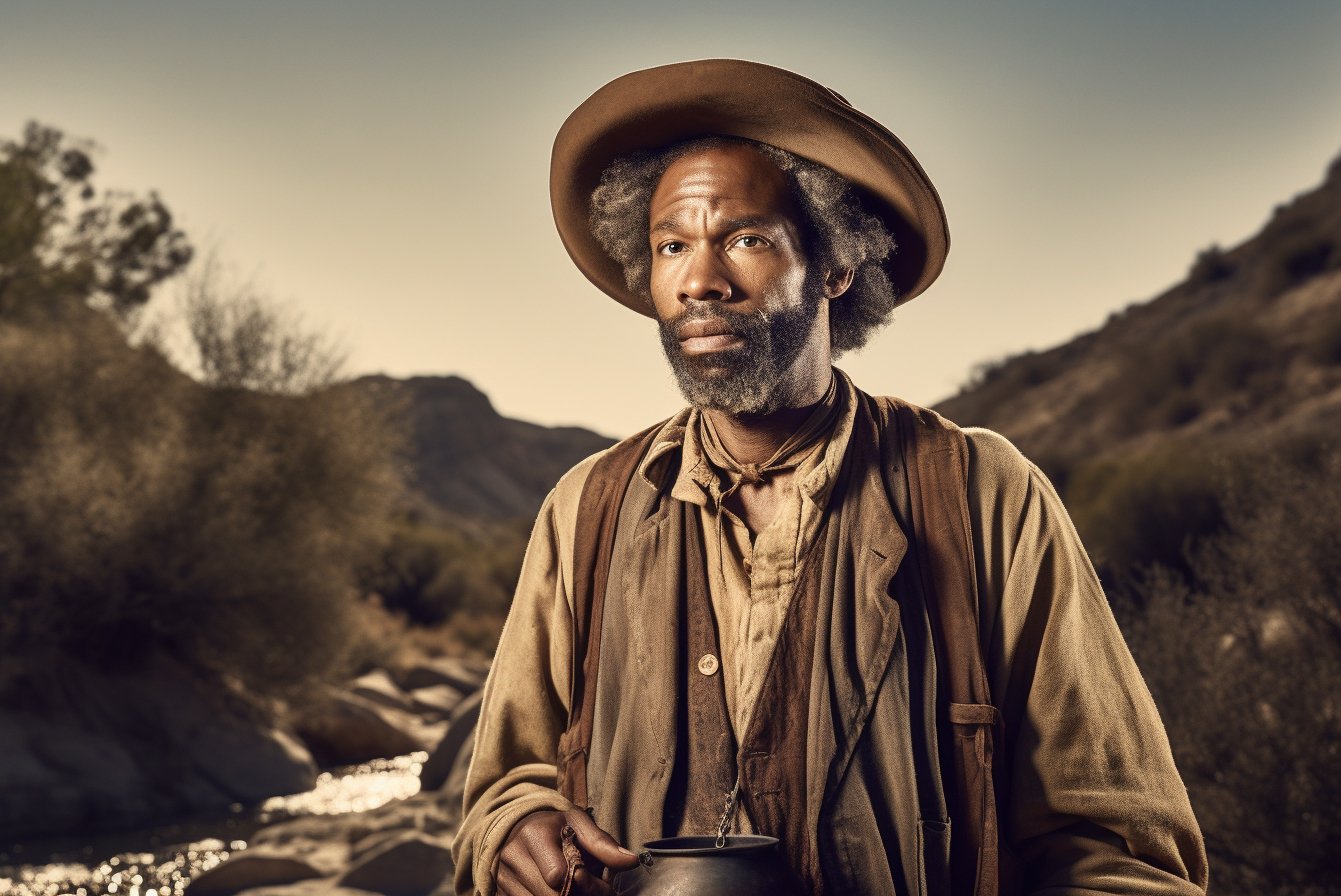Reuben Ruby
From Hack Driver to Pioneering Abolitionist
Reuben Ruby in his early thirties, performing his hackney duties on the streets of Portland, Maine.
Reuben Ruby was more than just a 19th-century hack driver. He was a prominent African American leader and activist in Portland, Maine. He was a hero who fought for freedom and justice during slavery and oppression. A pioneer by all rights, Ruby broke barriers and created opportunities despite many limitations and challenges faced by blacks of his day. Through activism, business, and philanthropy, Ruby inspired and supported his community, which was burdened by discrimination and hardship.
How Reuben Ruby Used His Hack Business to Fight Slavery
Reuben Ruby was born in Gray, Maine, in 1798, to an enslaved North African woman. He moved to Portland in the early 1820s and started a hack business, which was a taxi service using horse-drawn carriages. He was the first hack driver in Maine. His hack business was not only profitable but also influential. It gave him access to different people and places and enabled him to participate in various social and political causes.
Reuben Ruby preparing for a daring night rescue of enslaved blacks.
Ruby strongly opposed slavery and became a key figure in the Underground Railroad, bravely risking his own safety and well-being to help individuals escape enslavement by transporting them to secure places within the city. Then he helped many find freedom in Canada, driving them to the steamboat or train that would take them across the border.
Ruby also drove and hosted famous abolitionists like William Lloyd Garrison, who visited Portland in 1832. Ruby drove Garrison around the city and facilitated a meeting between him and leading black activists. Ruby also formed several anti-slavery societies, both at the state and national levels. In 1834 and 1841, Ruby was instrumental in establishing the Maine Anti-Slavery Society and the Portland Union Anti-Slavery Society, respectively.
His work with black anti-slavery societies involved frequent trips to New York. In addition, he participated in national conventions and meetings of abolitionists, such as the National Convention of Colored Men in 1834 and the National Convention of Colored Citizens in 1843. Ruby was also a vice president of the American Moral Reform Society (AMRS), representing Maine.
The AMRS was a black American abolitionist and moral reform organization founded in Philadelphia in 1836. The society’s goals were to promote temperance, education, and moral reform and to end slavery. The AMRS was one of the first African-American organizations to focus on social reform, and it was integral to the abolitionist movement.
Reuben Ruby Empowers His Community and Strikes Gold
William Lloyd Garrison preaching at the Abyssinian Meeting House on Newbury Street in Portland, Maine, in 1832.
Another cause that Ruby championed was the empowerment of the black community in Portland. He was a founder of the Abyssinian Society and the Abyssinian Meeting House, which was a center for religious, educational, and social activities for the black community—the first black American church in Portland. William Lloyd Garrison preached there when he came to town.
Ruby funded the acquisition and construction of the building, which still stands today as the third-oldest African-American meeting house in the nation. He also helped publish a protest in the newspaper against the treatment of “some six hundred African Americans” in white churches throughout Portland.
Reuben Ruby’s adventurous spirit also led him to seek fortune in the California gold rush. In 1849, he left his family in New York and traveled by ship via Panama to join the thousands of prospectors who flocked to the Golden State. He became wealthy after discovering gold in the Stanislaus River and returned to Portland with his newfound riches.
Ruby was one of the few who succeeded in the risky and competitive business of gold mining. He later invested his money in various ventures, such as a restaurant, a trading company, and a watchmaking shop. He never lost his passion for gold, however, and often returned to California to look for more.
Reuben Ruby died in 1878 around age 80 and was buried in Evergreen Cemetery in Portland. He left a legacy of courage, compassion, service, and sacrifice.





Mary Ellen Pleasant was a self-made millionaire and leading abolitionist who rose to fame and suffered infamy in San Francisco.